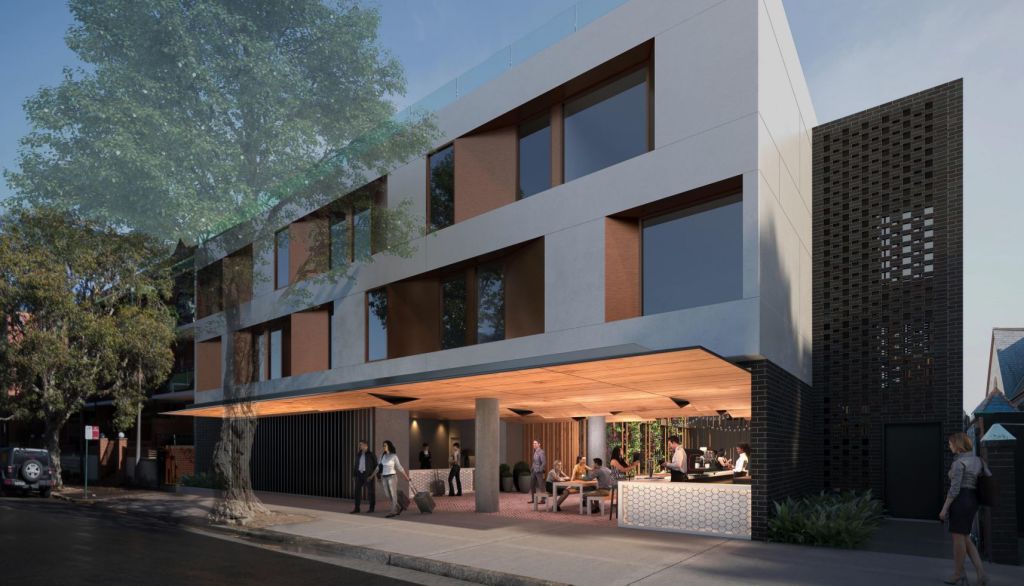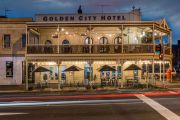
NSW government reform to fast-track DAs during coronavirus pandemic is stifling opposition, residents say
Emergency reforms enacted by the NSW government to fast-track development applications during the COVID-19 pandemic have severely impacted the ability of people to protest these plans, says a community group.
Many processes have now been moved online, and DAs are discussed by councillors in online video meetings with objectors having to nominate a limited number of speakers on their behalf who are allowed to talk for an allotted number of minutes.
“It’s difficult as many people now feel completely locked out from the planning process,” said Maire Sheehan, of the Better Planning Network, a group of local communities, organisations and individuals across NSW concerned with the planning system.
“One of the changes is there’s a public forum where you can speak for three minutes, but in most councils that isn’t part of the formal meeting. That’s restricted people’s ability to speak to their local councillors about what’s concerning them, and made it harder to show the strength of community feeling against planned projects they’re opposing within such narrow parameters.
“And while some of the measures have been introduced to fast-track construction projects and safeguard employment, we’re finding that many developers are getting planning approval but then waiting for a more profitable environment to do the work, or selling the land with the DAs attached to make more money.”
One commercial project that drew a large amount of community opposition is that of a four-level, 56-room boutique hotel, with a cafe and bar and car-stacker system, planned with dual frontages on a residential street and a laneway in Redfern.
Residents objected to the DA for the hotel at 589-591 Elizabeth Street, saying its planned 24-hour operation could create noise at night for homes close by, lead to traffic clogging the laneway and problems for the 1888 heritage Church of Te Wairua Tapu, belonging to the Sydney Maori Anglican Fellowship, next door.
The application for the hotel received planning approval from the City of Sydney in April, with certain conditions for consent, but the 831-square-metre site – bought by Zhengde Real Estate late in 2016 for $7.1 million – has now been put up for sale with the consent attached and an asking price of about $12 million. Zhengde didn’t return emails asking for comment.
Screenwriter Alexa Wyatt, whose home backs onto the laneway, said: “It’s very hard now to object to plans and make yourself heard, and councillors tend to be more reluctant to physically inspect sites. Then we had notification of a Zoom meeting about the plans and four to five of us spoke for three minutes and then we were muted – and no one referred to anything we’d said.
“In normal circumstances, a big group of you would go to the town hall and stand up and speak so councillors could see how many of you were objecting. Instead, this process isn’t democratic and shuts out those people who aren’t comfortable with the technology or who don’t have access to it. There were 119 objections to the hotel, but that can be meaningless without councillors seeing them.”
A City of Sydney spokesperson said all planning submissions and objections are provided to members of the local planning panel, before meetings, for consideration and recommendation. Applicants and objectors then have a further opportunity to address the panel via an online video meeting.
“When the pandemic reached Sydney, we were quick to change our processes to accept written submissions and host speakers online,” she said. “Feedback from the community indicates that this process is working well, with many finding digital engagement easier than a physical trip into Town Hall.”
In the case of the hotel, she said local planning panel members were made aware of the objections in advance of the meeting at which they were discussed again along with issues raised by the applicant.
Knight Frank Sydney agent Dominic Ong who is selling the site via expressions of interest said he did not understand why anyone would be against the plan to transform an ugly former mechanic’s workshop on the street into a smart new hotel.
“It’s receiving some of the most interest of our latest listings,” he said.
“It isn’t a high development and it’s going to improve the surroundings and complement the area, but what do these people want? Vacant land or a petrol station – or a beautiful hotel? No one wants controversy; they want a hotel.”
Jackson Tutahi, one of the Maori church directors, said he was worried that the vibrations from the work to create basement parking would damage his church, and was also concerned about potential noise from the hotel itself and the bar. “We did raise our concerns but we felt they fell on deaf ears,” he said.
“It’s harder to get your message across with these new ways of looking at planning issues. It’s removed the personal touch.”
Team leader and senior town planner Tom Hutchison at the Council Approval Experts, Fragar Planning & Development, said he understood how people felt about the new methods. “In some respects I think it’s easier to get approval for DAs now though,” he said.
“A lot of councils are shedding the requirements of paperwork with the ability to lodge things online now instead, and they’re assessing things more quickly. I think a lot of people are seeing opportunities now to get ahead of the influx of applications.”
Fellow planner Eli Gescheit, of Navon Solutions, said it was also harder for those objecting. “The Land and Environment Court is also now online and I’ve been involved with that, and it’s actually not that easy,” he said. “It’s challenging when you’re not seeing the architect or council officer in the same room.
“One solicitor told me recently that she was with a planning panel at an online meeting and the three to four members were each in their own homes, and the decision looked like going against a DA. Then one of the panel members started speaking over the rest and eventually it went the other way, and was approved.”
Another environmental planner who asked not to be named for fear of jeopardising his clients’ application agreed it was now much harder to oppose plans. “It’s all now so disjointed and fractured that it’s hard for some people to make sense of the applications,” he said.
Ms Sheehan feels the same. “The new rules are that if there are 10 people putting in a written submission, talking about the same problem, like overshadowing, then they will be counted as one,” she said. “And if you’re talking about one issue, you’re limited in how many can speak.
“So by the time people get to know the system, it’s probably all over.”
In the meantime, hotel objector Ms Wyatt, with her neighbours, has retained a lawyer to write a letter to the City of Sydney setting out her concerns with the process of assessing the DA, and commissioned an acoustics report about the application.










